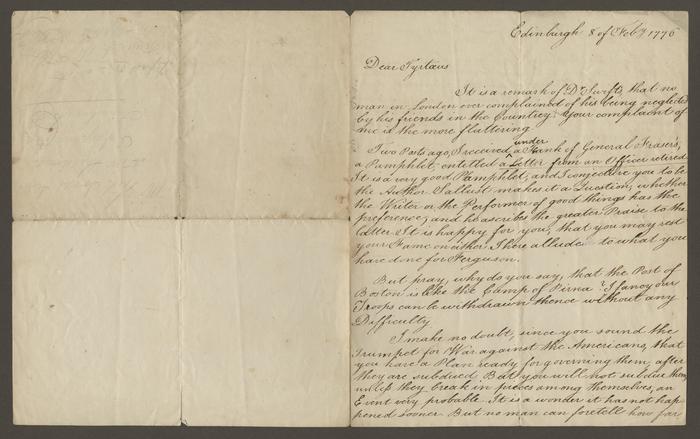David Hume, 1711-1776
Entity Type:
IndividualIdentifier:
ENT.000004086Biography:
David Hume, (born May 7 [April 26, Old Style], 1711, Edinburgh, Scotland—died August 25, 1776, Edinburgh), Scottish philosopher, historian, economist, and essayist known especially for his philosophical empiricism and skepticism.Hume conceived of philosophy as the inductive, experimental science of human nature. Taking the scientific method of the English physicist Sir Isaac Newton as his model and building on the epistemology of the English philosopher John Locke, Hume tried to describe how the mind works in acquiring what is called knowledge. He concluded that no theory of reality is possible; there can be no knowledge of anything beyond experience. Despite the enduring impact of his theory of knowledge, Hume seems to have considered himself chiefly as a moralist.
That Hume was one of the major figures of his century can hardly be doubted. So his contemporaries thought, and his achievement, as seen in historical perspective, confirms that judgment, though with a shift of emphasis.

Related Object: David Hume letter to Bryce Blair, February 8, 1776